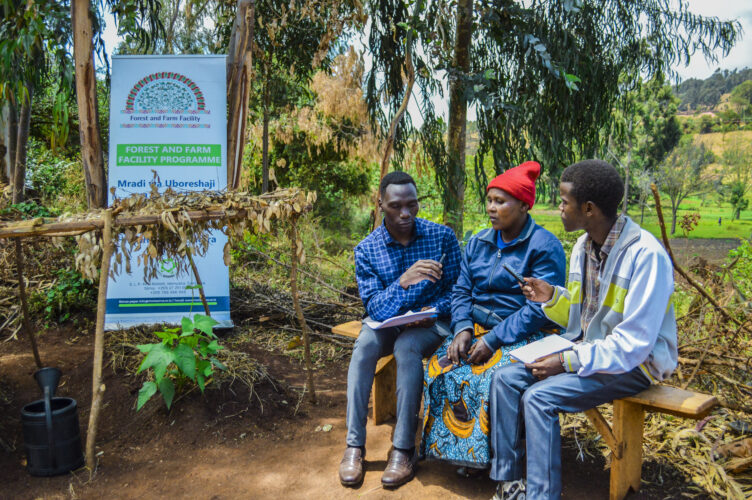In Tanzania, Habari Njema Radio 87.5 FM aired a program in Swahili titled “Best Production Practice for Garlic Farmers: How do Smallholder Farmers use them?” This insightful episode was a collaboration between the Tanzanian Producer organization, MVIWAMA and YenKasa Africa Radio Initiative. The program, which reached farmers across the Manyara region in Tanzania, focused on improving garlic farming practices among smallholder farmers. The discussion brought together the experiences of local farmers and expert advice from the Mbulu District Council’s agricultural officer.
Garlic farming is a critical agricultural activity in the Manyara region, especially in the Mbulu district. The region’s smallholder farmers rely on garlic as a significant source of income and nutrition. However, the success of garlic farming depends on adopting best practices tailored to the local environment. This radio program sought to bridge the knowledge gap by bringing real-world experiences from farmers and expert recommendations to the forefront.
Experiences of Local Farmers: A Pathway to Success
Kastuli Paulo’s Journey with Quality Seeds and Proper Planting
Kastuli Paulo, a garlic farmer from Dongobesh ward, shared his journey from traditional to modern farming methods. Kastuli emphasized the importance of using quality seeds, a foundational step in garlic farming. He says planting healthy, disease-free garlic bulbs significantly influences crop yield. He also highlighted the importance of proper planting techniques, including the depth and spacing of the bulbs, which ensure adequate root development and reduce competition for nutrients.
Regina Paulo on the Role of Modern Fertilizers and Strategic Planting
In Tumati ward, Regina Paulo highlighted how modern fertilizers have revolutionized her farming practices. By using fertilizers rich in essential nutrients like nitrogen, phosphorus, and potassium, she has seen a substantial improvement in the size and quality of her garlic. Regina also noted the importance of strategically planting and choosing fertile, well-drained areas with ample sunlight. These factors contribute to healthier plants and higher yields.
Sipriani Paulo’s Focus on Organic Manure and Water Management
From Bashay ward, Sipriani Paulo discussed the benefits of using organic manure in garlic farming. He stressed that organic manure improves soil fertility and enhances the soil structure, making it more conducive for garlic growth. Sipriani also noted that effective water management is crucial, especially during the dry season. By adopting efficient irrigation methods, he ensures that his garlic plants receive adequate moisture without the risk of waterlogging, which can damage the crop.
Expert Insights: Agricultural Best Practices from Emmanuel Sungi
Seed Preparation and Quality Control
Agricultural officer Emmanuel Sungi provided expert guidance on the essential steps in garlic farming. He echoed the farmers’ emphasis on seed quality, advising that farmers should only use bulbs that are free from disease and pests. Sungi recommended treating seeds with appropriate fungicides to protect against soil-borne diseases that could affect germination and early plant growth.
Importance of Weed Control
Weed control is another critical aspect that Sungi addressed. He explained that weeds compete with garlic plants for nutrients, water, and sunlight, which can drastically reduce yields. Sungi advised regular weeding, especially in the early stages of plant growth, to minimize competition and ensure that garlic plants thrive.
Proper Spacing and Farm Management
Spacing is a key factor in garlic farming that Sungi emphasized during the program. Proper spacing between plants allows for adequate air circulation, reduces the spread of diseases, and ensures that each plant has enough resources to grow. Sungi also discussed overall farm management practices, such as crop rotation and using organic mulches to retain soil moisture and suppress weeds.
Conclusion
The radio programme provided valuable insights into how smallholder farmers in the Mbulu district are enhancing their garlic production. By incorporating the experiences of farmers like Kastuli, Regina, and Sipriani with expert advice from Emmanuel Sungi, the program offered a comprehensive guide to improving garlic farming outcomes. These best practices, from seed selection to farm management, are vital for achieving higher yields and ensuring sustainable farming practices in the region.
Listen to the Radio Programme
Access all Tanzania’s Productions here:
You can access all other radio productions here:

